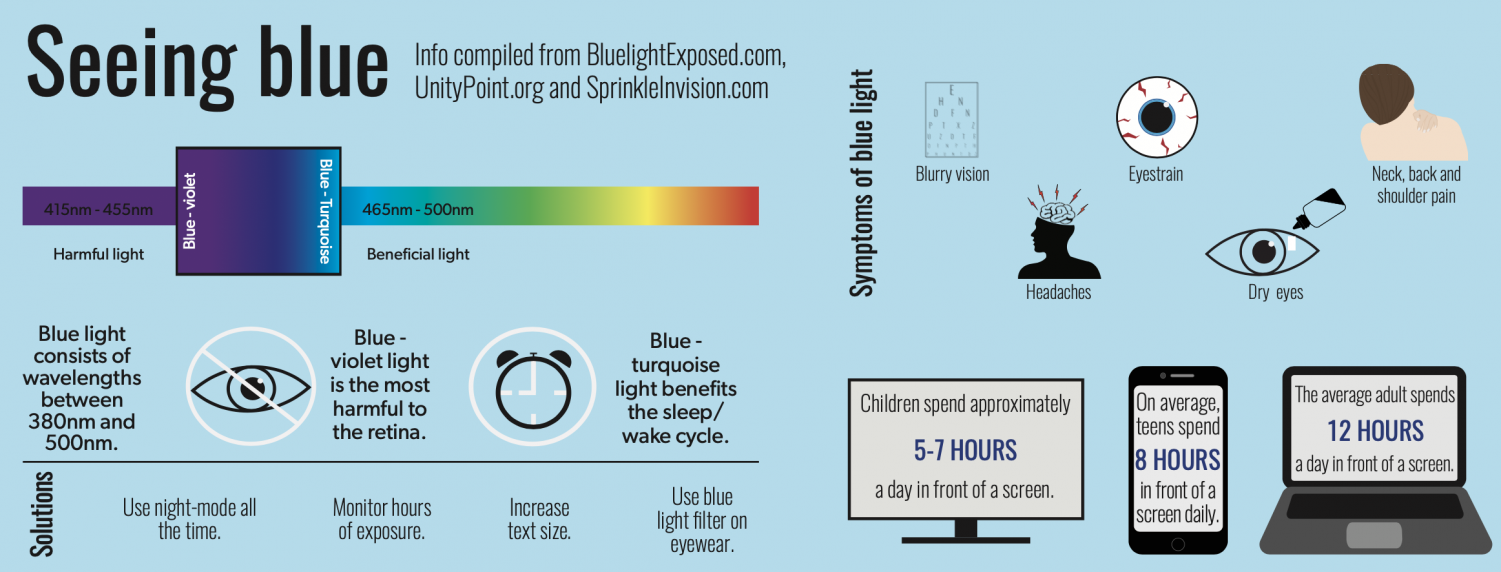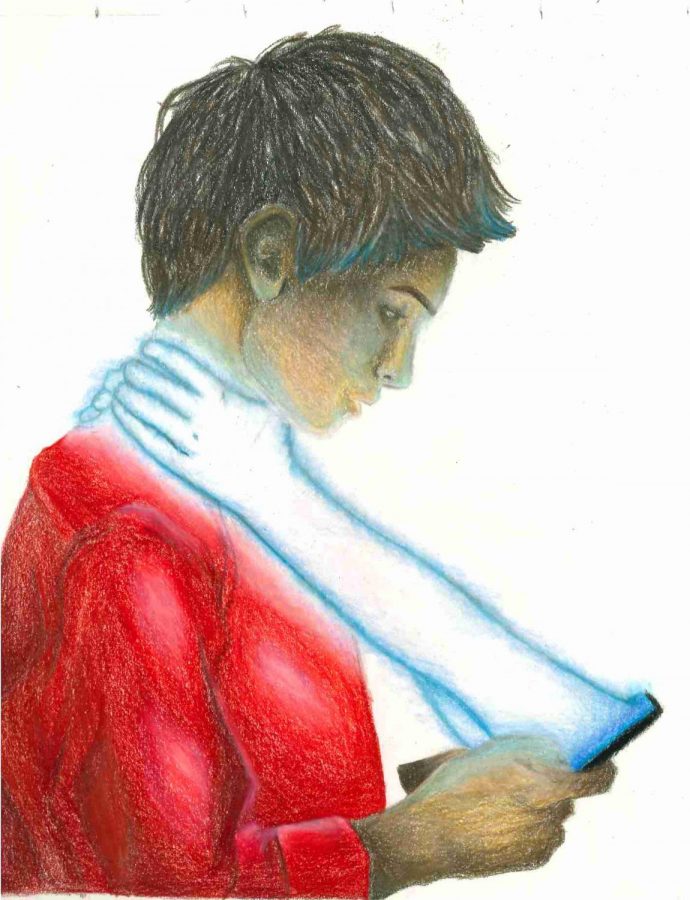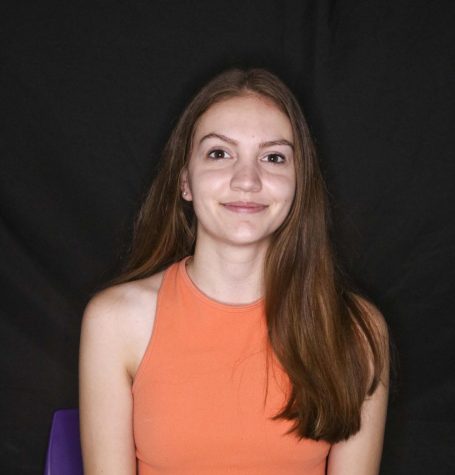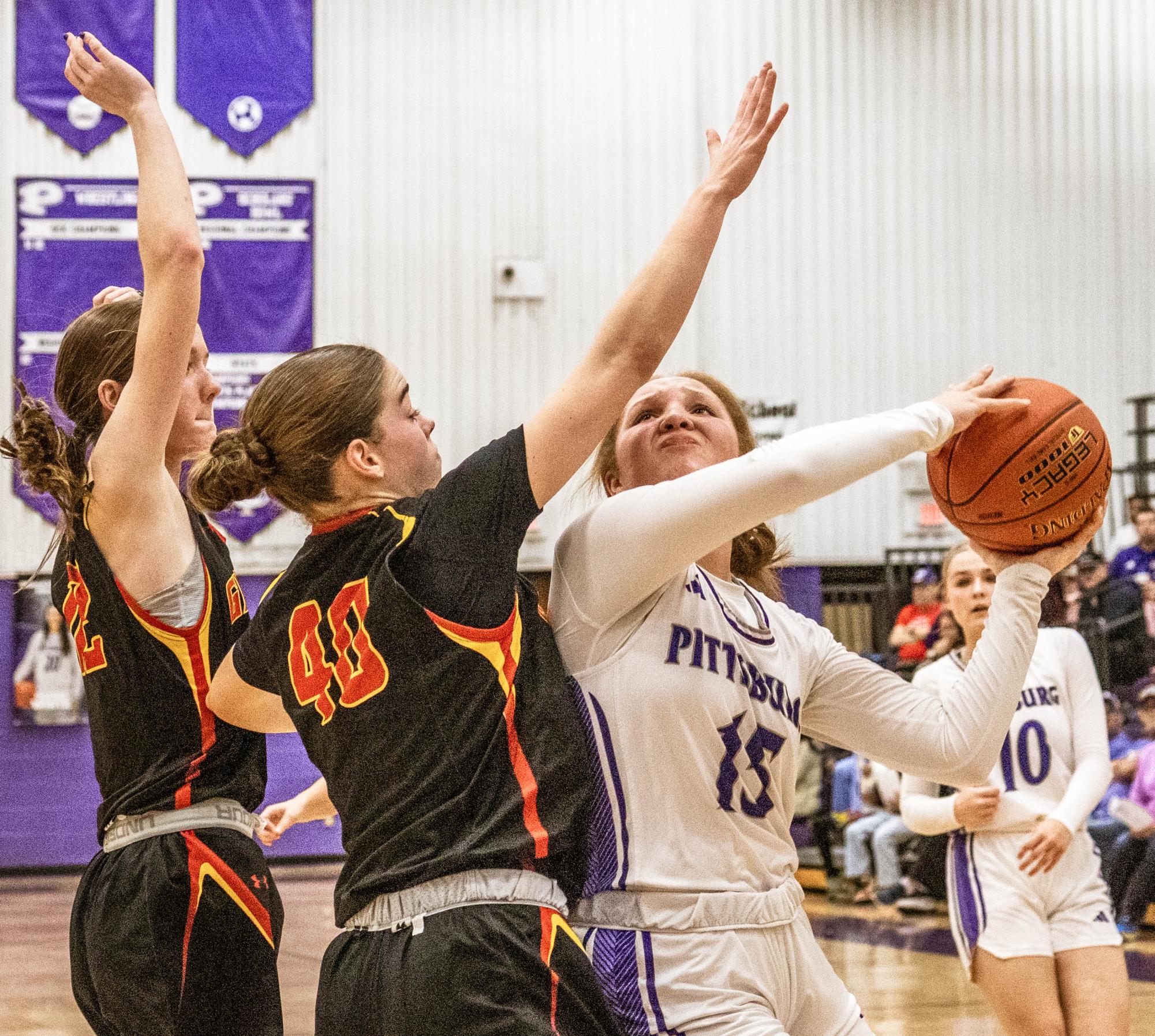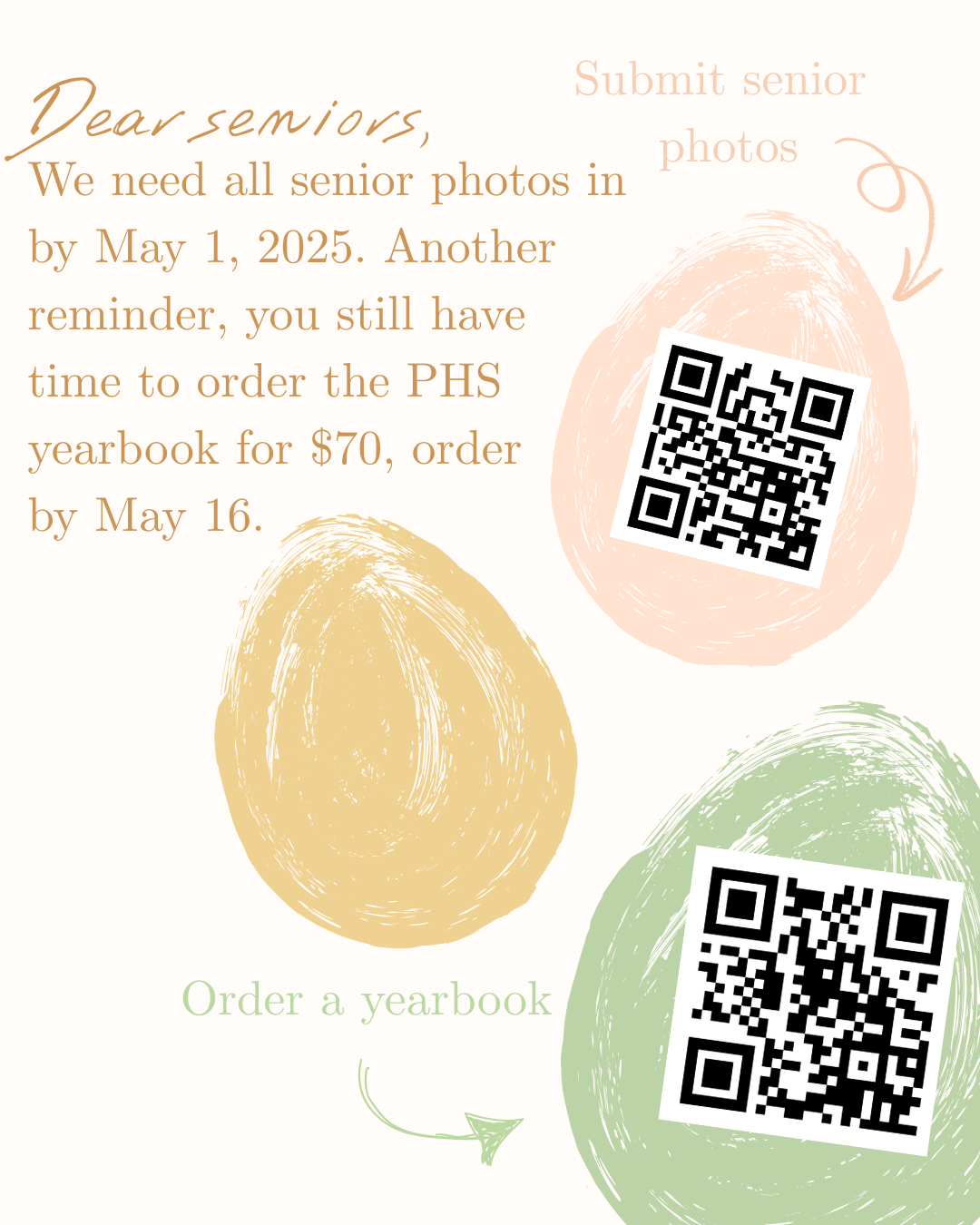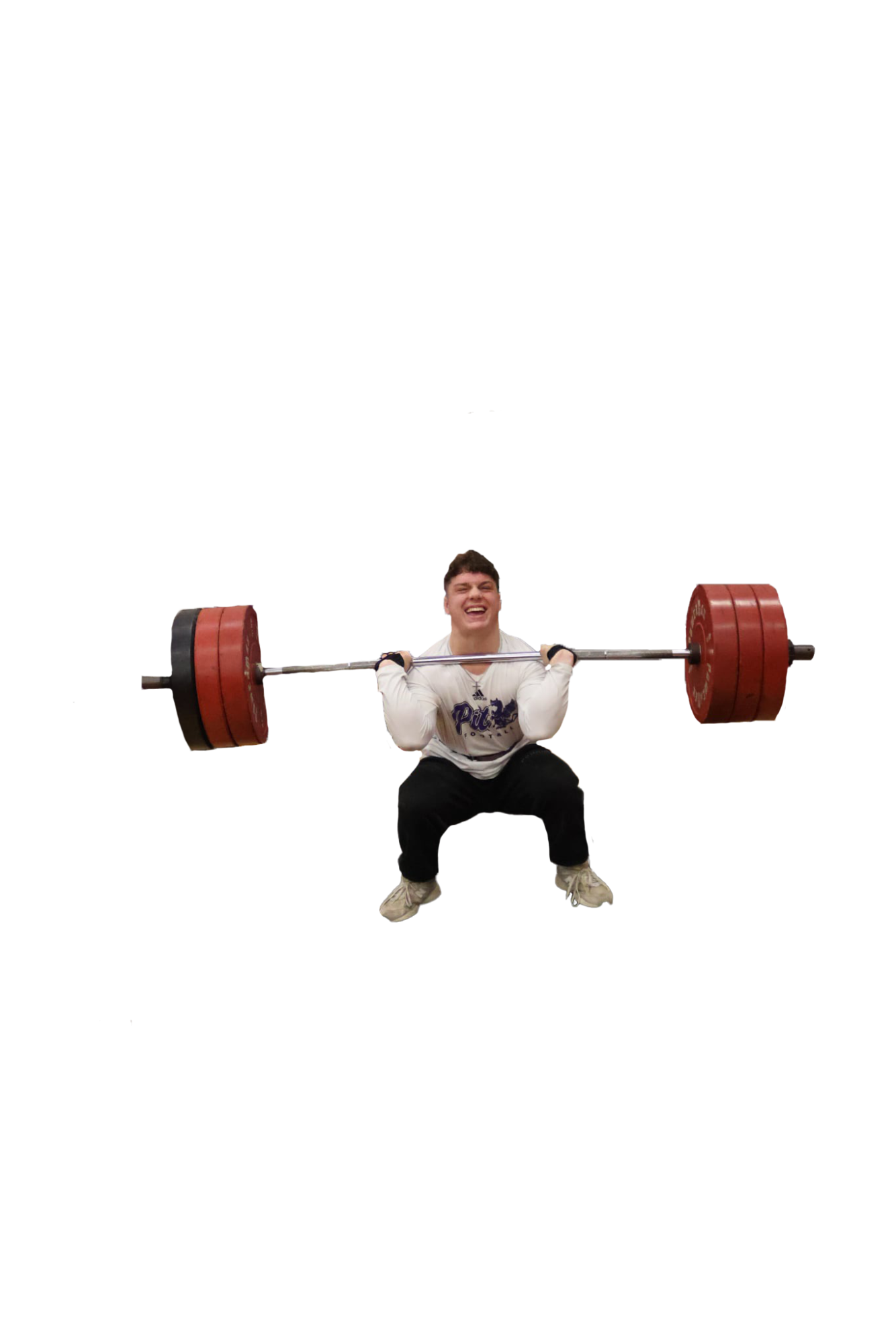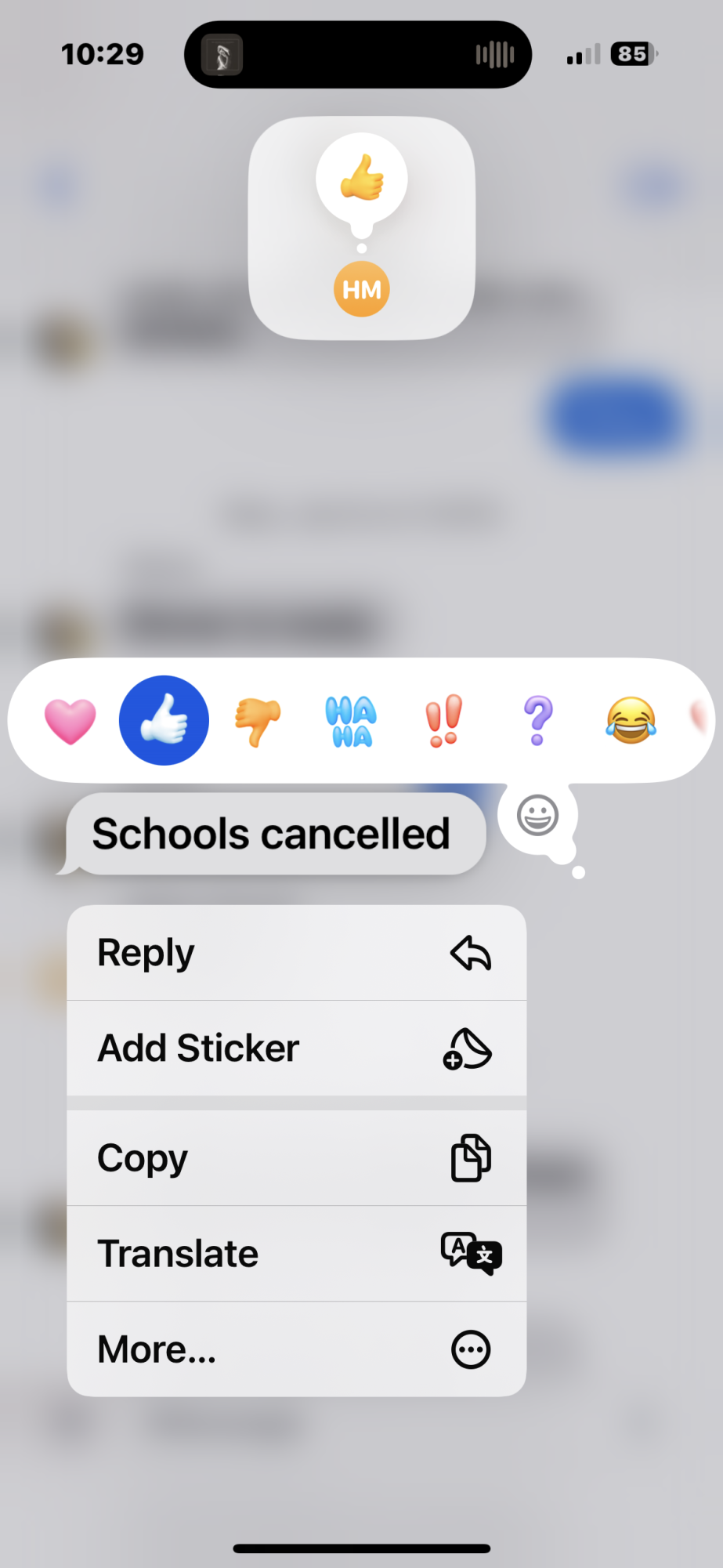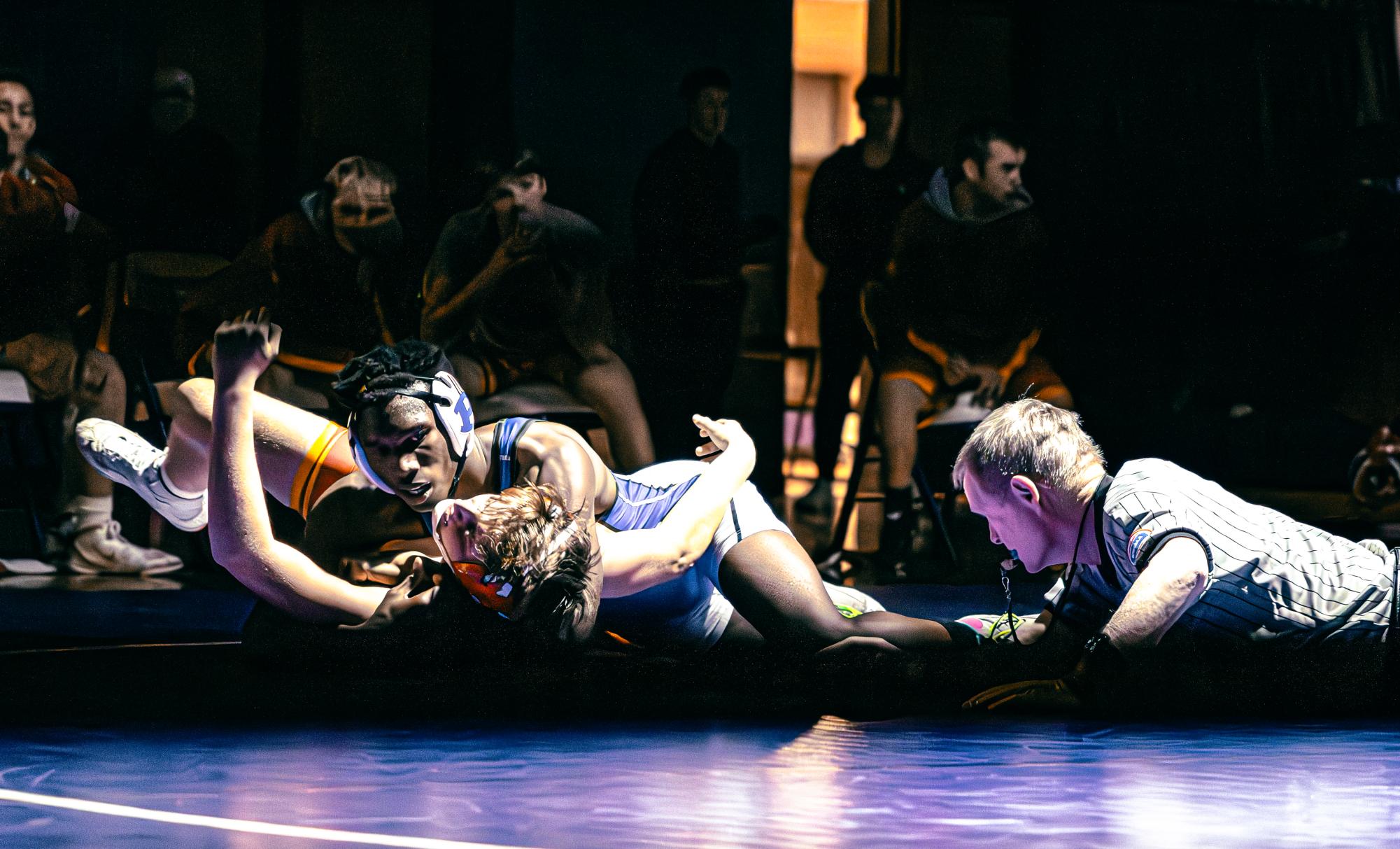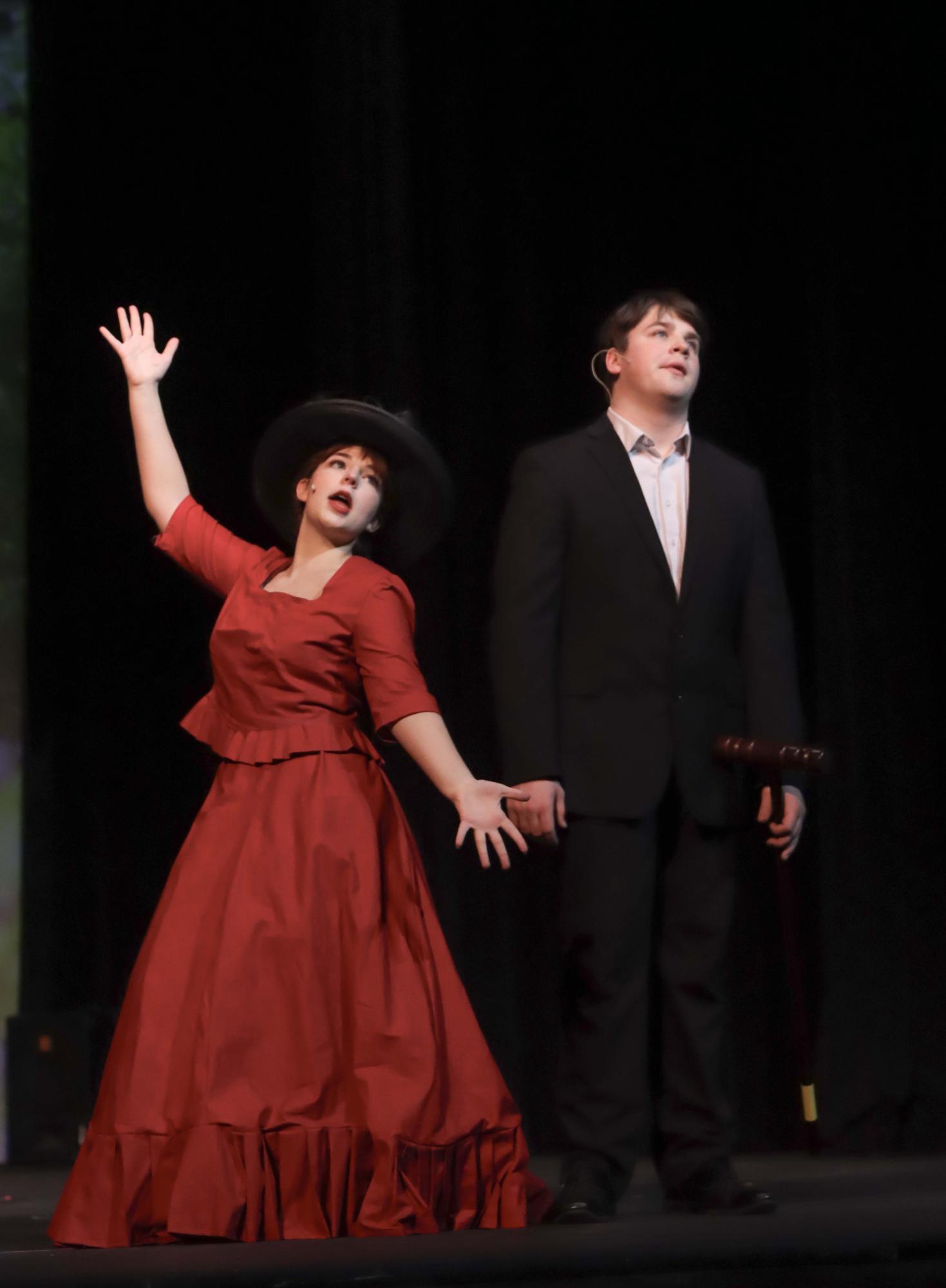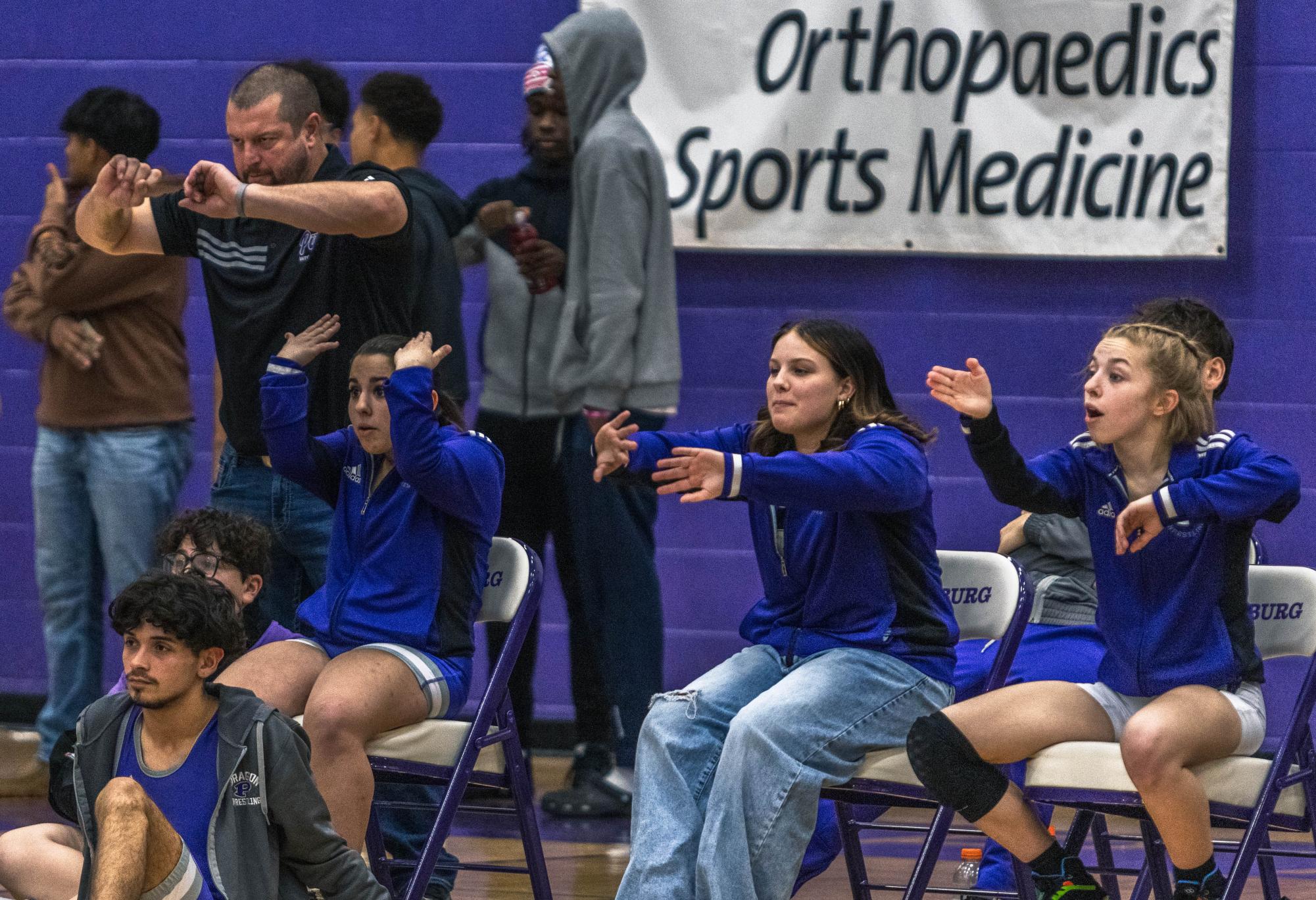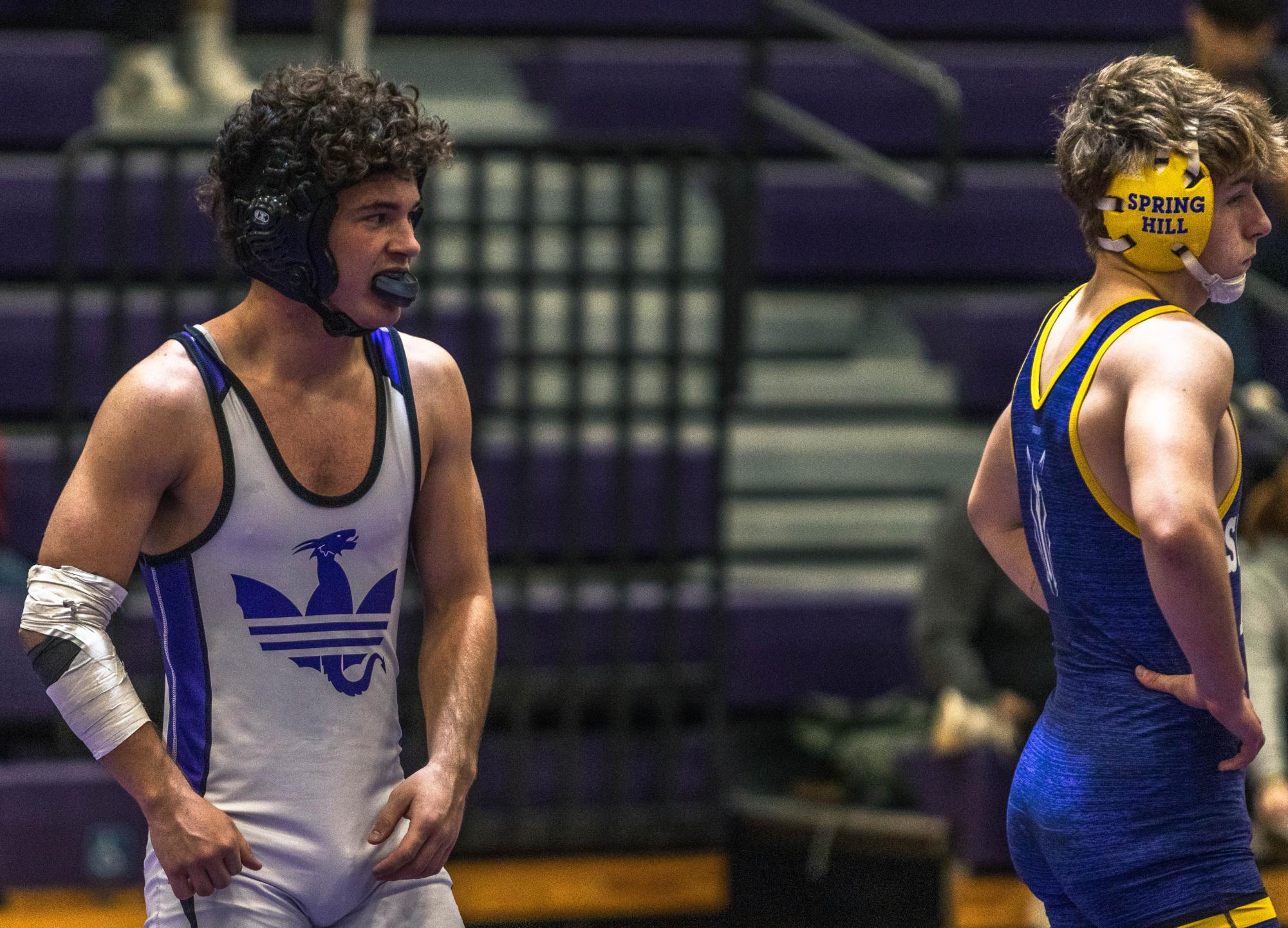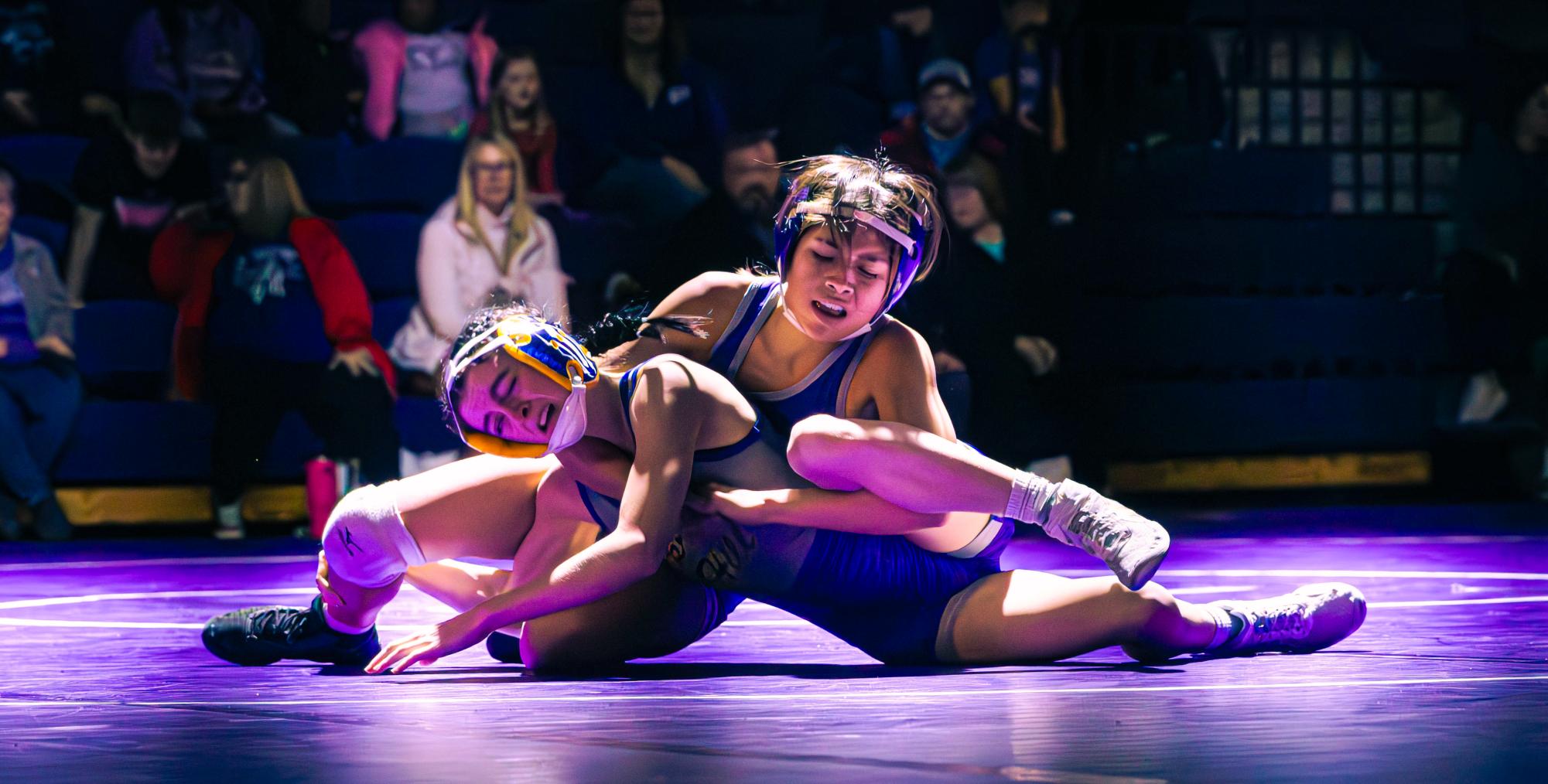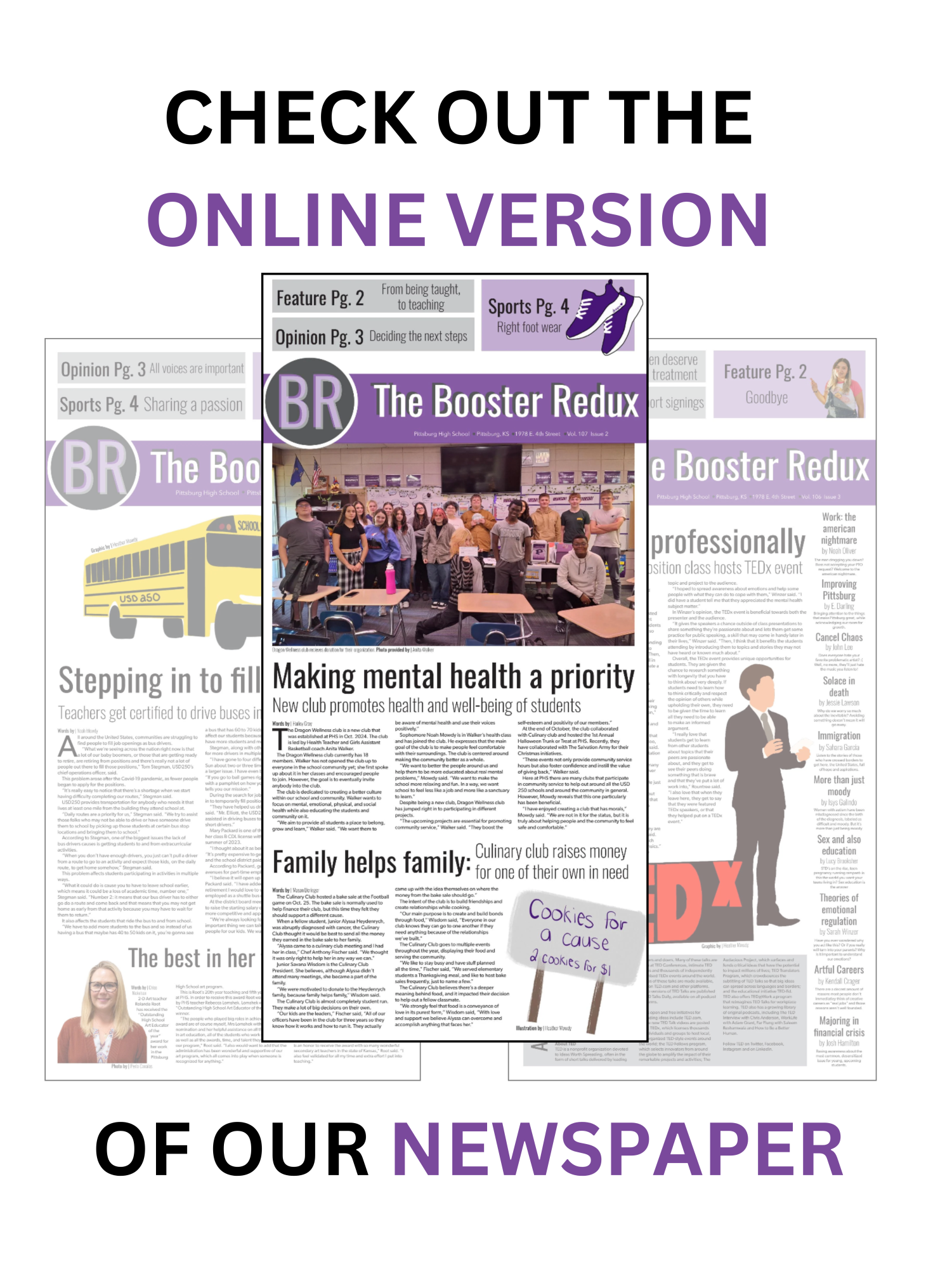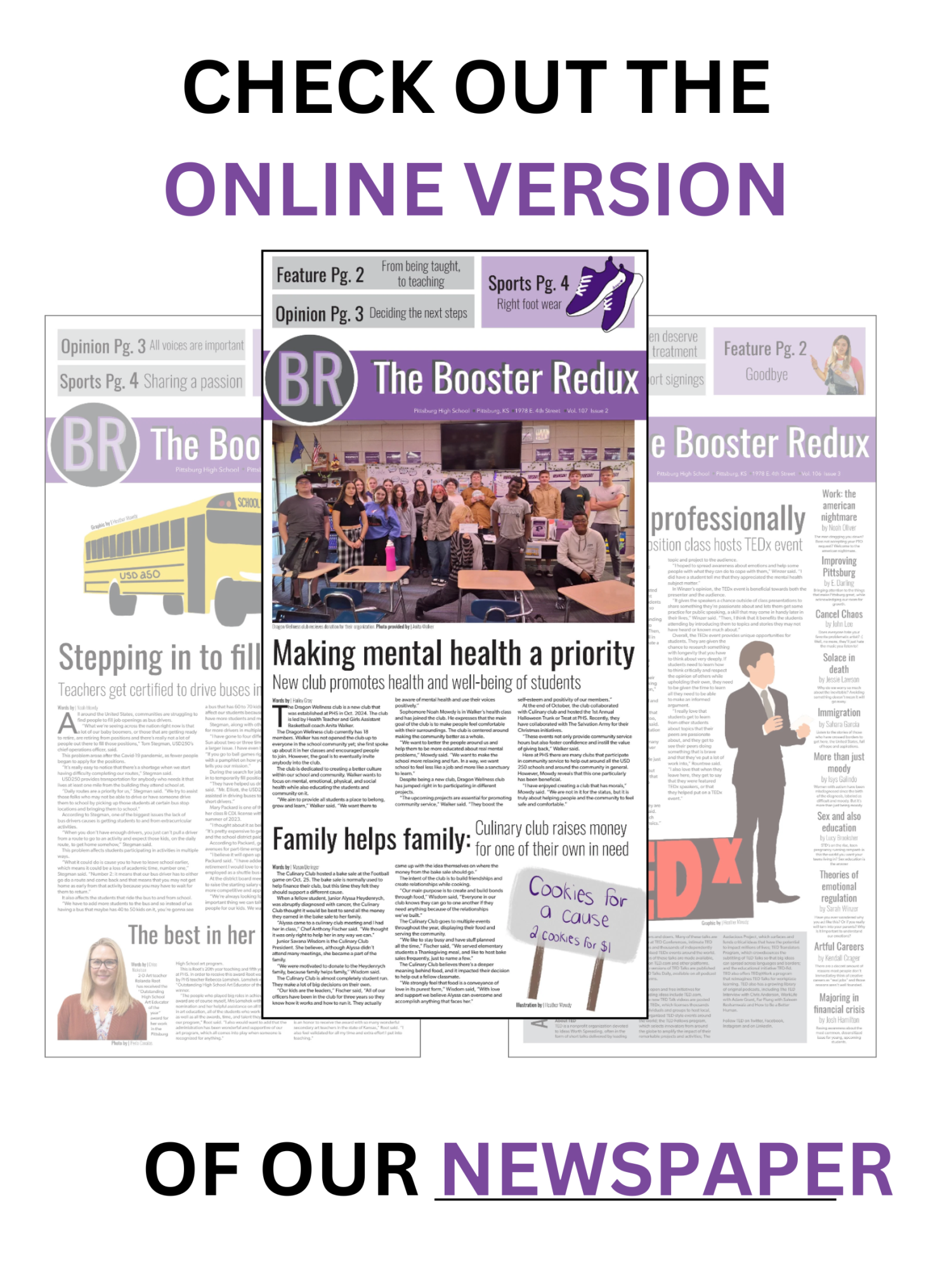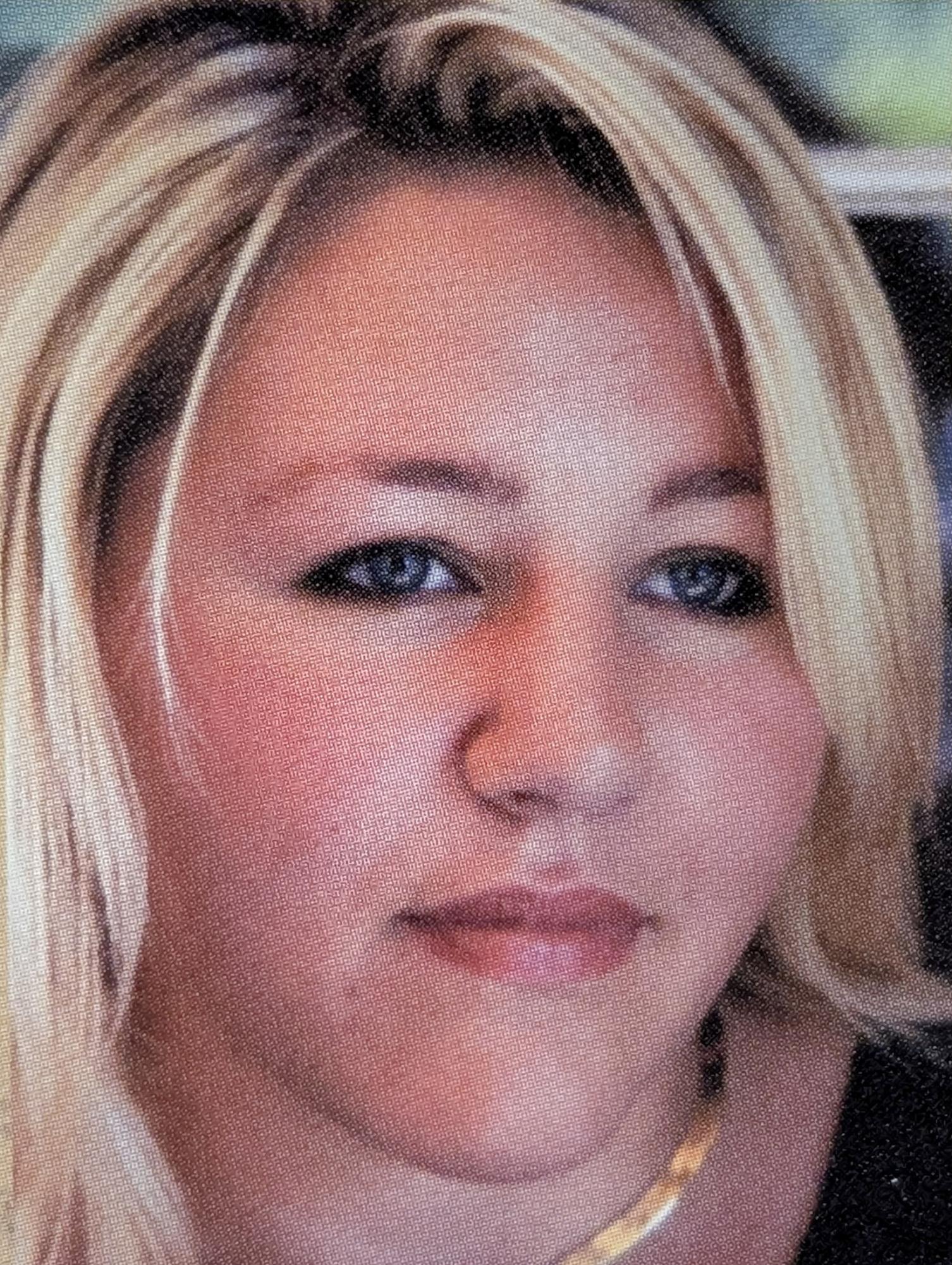What lies beneath the screen
Research reports overexposure to blue light causes health issues
Photo by: Audrey Goode
Melatonin helps control the wake and sleep cycles in the body. The sleep cycles of teens, according to Alcantar, are already naturally unbalanced, causing teens to want to stay up later.
February 11, 2020
Using phones before sleep may seem like a good way to wind down, but it actually has the opposite effect. A specific wavelength of light that radiates from phone screens, called blue light, can have many negative effects.
The wavelength of blue light is short and produces high amounts of energy, according to Blue Light Exposed, an organization that provides information and awareness online. This energy can have long term effects on the eyes and brain of teens and adults who absorb it.
“Blue light fools the brain into thinking it’s daytime,” Tammy Alcantar, a registered nurse at the Crawford County Health Department said. “When that happens, the body stops releasing a sleep hormone called melatonin. [This] increases our alertness and resets the body’s internal clock to a later schedule.”
Melatonin helps control the wake and sleep cycles in the body. The sleep cycles of teens, according to Alcantar, are already naturally unbalanced, causing teens to want to stay up later. When these cycles are interrupted by the lack of melatonin, teens can start to feel tired and can lose valuable parts of their already unusual sleep cycle.
“[When] staying up and using that device, it takes a little bit longer to get to sleep,” Alcantar said. “Then whenever [sleep comes], you’re not getting the sleep that you need to feel more mentally alert. You tend to have less of the REM sleep, and then you wake up feeling sleepy.”
REM, or rapid eye movement sleep, according to the Valley Sleep Center, is crucial, especially in teens, because it is the point during sleep when the parts of the brain that affect learning are stimulated. By absorbing blue light before sleep, teens are essentially losing this valuable part of the sleep cycle and wake up feeling unrested regardless of the amount of sleep they got.
Losing REM sleep can also put teens at a higher risk for obesity as well as diabetes and high blood pressure, Alcantar said.
An article published by the Official Journal of the American Academy of Pediatrics claims that between 50% and 90% of school-aged children and adolescents do not get as much sleep as they may need. The pervasive use of screen-based media is a likely contributor to widespread sleep insufficiency. Screen-based media devices are present in the bedrooms of 75% of children, and ∼60% of adolescents report viewing or interacting with screens in the hour before bedtime.
Sophomore Abe Alonso is one of the roughly 60 percent of teens who use their phones before bed.
“I’m used to staying up until 2 or 3 in the morning [on my phone],” Alonso said. “[I put off sleeping to be on my phone] usually every day.”
Alonso knows the effects blue light and phone use can have on sleep in teens. He spends hours each night before he goes to bed on social media and YouTube.
“Usually it’s not me wanting to stay up, it’s just that there are other things that look very entertaining,” Alonso said. “It’s just a wormhole of things I want to watch.”
Blue light and phone screens, in general, may also be the underlying cause of dry eyes and eye soreness in teens. Alcantar was a part of a study conducted on people with severely dry eyes and saw the results firsthand.
“I took a break from my computer,” Alcantar said. “And I went back to be tested and my eyes had improved. They weren’t as dry.”
From the use of his phone for hours at night, Alonso has noticed a similar effect.
“Every once in a while when I stay up until 5 in the morning,” Alonso said. “Each time I blink it feels like sandpaper rubbing against my eyes.”
Aside from staying up late, Alonso also admitted to choosing his phone over homework. This choice coupled with the lack of sleep teens can have from blue light is a dangerous pair when it comes to being successful in school.
“[Blue light] could definitely affect some people [and it] could definitely get in the way of schoolwork like it does for me,” Alonso said. “Like today, we had a test and it was open notes. Instead of taking notes, I decided to be on my phone so I had to improvise on my test.”
Because blue light can be detrimental to teens’ health and performance in school, Alcantar recommends a curfew to counteract or eliminate blue light before bed.
“Two hours before bedtime all devices need to be shut off,” Alcantar said. “That is what is stated by the National Sleep Foundation, is that a two-hour window gives time for that melatonin to start to be released by the brain.”
